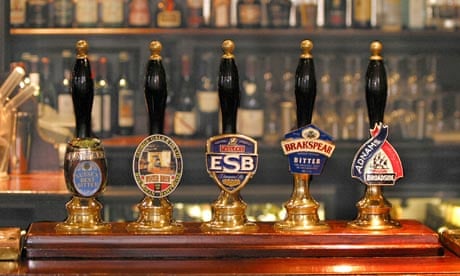Pubs are closing across the country. This happens for a variety of reasons – the economic climate, increasing beer prices, supermarket discounting of alcohol and changing drinking habits.
There's nothing one can do, or indeed should do, to try to prevent the owner of an unviable business closing it down and making alternative use of the land. However, in Cambridge we have a particular problem. Because house prices are so high, it is sometimes worthwhile for the owner of a popular, profitable, viable pub to seek to pull it down and replace it with a block of flats, so that they can make even more money.
Following a large number of pub closures – and public campaigns to keep some of them open – in early 2012 Cambridge city council began to investigate ways it could use the planning system to try to keep popular and profitable pubs open.
We had no policy on pubs in the 2006 local plan, and nothing much in national guidance until the National Planning Policy Framework was launched in March 2012. The first thing we did was commission the Cambridge Public House Study to give us some data and evidence that could be used to back up any planning policy change.
Using the study as an evidence base, we then drew up the Interim Planning Policy Guidance on protecting public houses. This set out how an applicant for planning permission for change of use should first demonstrate that the pub is not needed or not viable. Local and central planning committees in Cambridge have been using the NPPF and IPPG for some time now, with some success:
The closure of some pubs where the applicant failed to prove lack of viability has been refused, and the refusals have been upheld at appeal. Some of these pubs were closed, and have now reopened, such as the Carpenter's Arms, or are planned to reopen
In the case of the site of The Ranch the applicant succeeded in proving lack of viability to the committee's satisfaction, and permission to redevelop was given. Successive landlords over many years had tried all sorts of business models and target markets, and none of them really worked – I think this pub was simply in the wrong location.
In one case the developer put forward proposals to redevelop a pub site, including a large car park, to include a replacement pub as well as some flats. That's fine with councillors who don't mind losing the car parking – the pub is retained, the flats make the whole site more viable, and we don't want lots of people driving to, and particularly from, suburban community pubs anyway.
The story is not, however, one of unqualified success. Firstly, under the Use Classes Order there are some changes of use (eg from a pub to a building society) which do not need planning permission, so there is no opportunity for the planning rules to intervene at that point. Secondly, outside conservation areas no permission from the planning authority is needed to demolish a pub. In at least one case the appeal inspector took the view that, as the pub had been demolished, there was no established use of the site as a pub and so nothing that could be protected.
The view of the government is apparently that article 4 directions, which remove permitted development rights from particular buildings, should be used in these circumstances. We're looking into this possibility, but indications from other authorities are that this approach can be difficult and expensive. This point was made by several speakers, including myself, at a recent meeting of the All Party Parliamentary Save The Pub Group, and we will have to see whether ministers can be persuaded to change their minds.
We expect to move forward by including the principles from the IPPG in the Cambridge Local Plan 2014, where they will have more weight as policies than as guidance. We are also going to look at the practicality of using article 4 directions to control change of use and demolition.
And finally, when we do have a success and a pub is saved or re-opened, we must make a point of using the pub.
Tim Ward is executive councillor for planning and climate change at Cambridge city council
This content is brought to you by Guardian Professional. Join the local government network for analysis, best practice and the latest job opportunities

Comments (…)
Sign in or create your Guardian account to join the discussion